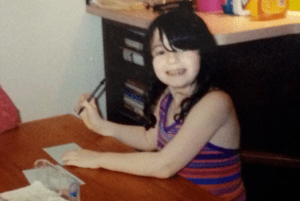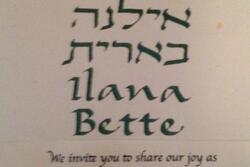Questioning My Identity from the Backseat
Why am I both burdened and liberated by the rich history that precedes me, and how do I identify myself with it accordingly? I remember sitting in a car outside of a Dunkin Donuts when I first pondered this question. Watching the cars drive along the highway, I tried to discern the faces of the drivers—discover their races, religions and genders in order to associate their appearances with stereotypical status and privilege. I wondered about myself—how I could fit in among the mosaic of peoples when my own identity seemed so misshapen.
A lot of what I know about being Jewish and being a woman comes from appearance. In fact, because of appearance, I’ve found it impossible to question my identity in secret or in silence. In middle school, I could not explore my religious identity quietly because I “looked Jewish”. Though it may seem to be an inescapable title for someone with my profile, I felt surprised and horrified to hear this phrase around every Jewish holiday as my fellow students assumed my participation in the festivities.
In high school, I have especially learned how femininity and Judaism come with certain expectations and outside pressures. These four years are strongly defined by the importance of appearing one way or another. Being a girl comes with a neatly packaged set of standards, just as Judaism comes with an even stricter set of beliefs maintained in holy books and commentaries. However, it is not just up to me to figure out where I fall in the broad spectrum of classifications—it is also up to the child sitting in a car outside a Dunkin Donuts, realizing the power in appearance and status that has the capability to define an individual.
In the decade since I questioned my identity for the very first time as an elementary school student, I’ve attended a Jewish day school, read a few shelves worth of books, and looked in the mirror frequently enough to realize the importance of looking like one thing or another in order to associate with a given group. Just because my friends believed I “looked Jewish” didn’t mean I necessarily wanted to celebrate an approaching holiday. Standing up to the expectations of wearing makeup to school everyday is a burden in its own right.
Perhaps there will always be the questions that get asked out loud, but also the questions that remain deep within us, unable to be answered but constantly demanding reflection and consideration. We are far too focused on what people expect of us to give ourselves an answer. I realize now that the question I asked myself was just an introduction to how I should go about understanding the various places in which the pieces of my identity intersect.
From time to time, I consider the same question I contemplated in the early years of my youth. I know now that I will not discover the function of my identity for years to come, and while my younger self would be heartbroken to realize that, I prefer living with an identity I do not fully comprehend. My younger self would also be surprised to realize that from the start, she was not the sole owner of her identity, but rather the body that held it and the mind that must now try to comprehend it. Armed with this understanding of the world, I will continue to search for a reason to be myself, if there is one.
This piece was written as part of JWA’s Rising Voices Fellowship.








Go Rachel!!